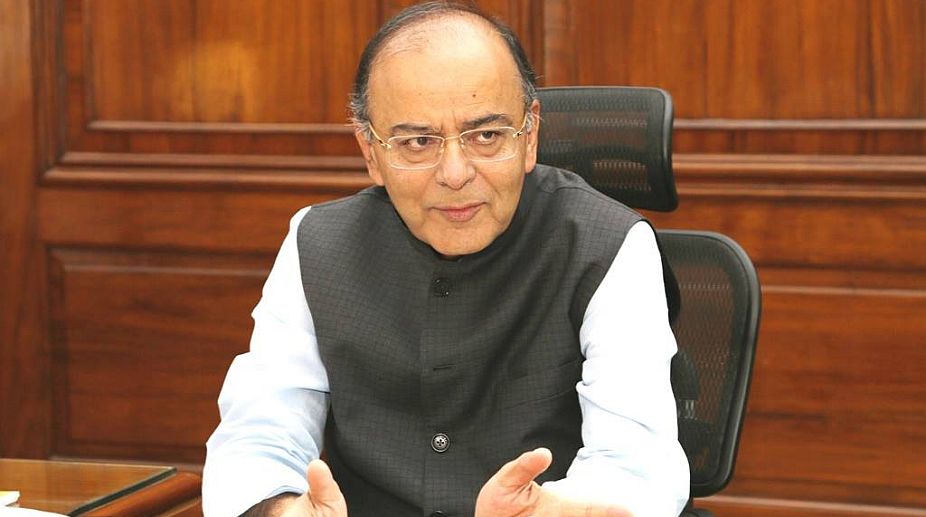Finance Minister Arun Jaitley on Saturday said that for the first time there is popular support for economic reforms in India and the recent election outcomes are indicative of it.
"The significant part of our economy today is, that there is perhaps for the first time, a huge amount of popular support as far as economic reforms are concerned," Jaitley said here at a reception hosted in his honour by Indian Ambassador to the US Navtej Sarna.
Advertisement
Governments in the past even when they reformed they were in stages, always felt that there was a political cost involved, he said, adding that as a result after some reforms they would take a pause.
"Obviously, people across the world had legitimate grudge as to how long India would take to take some of the steps. I think that phase in now behind us, he told the audience comprising officials from the Trump administration, diplomats, corporate leaders, think-tank community and Indian-Americans.
He said repeated elections indicate that people have become more aspirational and highly supportive of reforms.
Jaitley said that in the last three years India has been able to grow in the range of seven to eight per cent, even as the world has experienced a slowdown. "That is the rate of growth that we have fairly maintained. Our all other economic parameters seems to be fairly well under control," he said.
"We have seen in the last few years, 7-8 per cent growth is the Indian normal now," he said. "We grew 7.2 per cent, followed by 7.9 per cent, followed by likely 7.1 and the next year it is expected to go up," he said, adding that this figure could go up depending on two circumstances.
First being that does growth return to the rest of the world. And second being the untested area, economists feel is the impact of the goods and services tax when implemented itself could result in significant growth jump, he noted.
Under the Modi government, he said, several changes have taken place. "India by far has become one of the more open economies of the world. Most of our sectors are open for international investment. And we have been attracting one of the largest investment that any country has been attracting in the world," he asserted.
Jaitley said it is combination of this investment which has coming into India, couples with higher public spending, even the private sector spending was a little low, that has kept the Indian growth process going.
"The environment for doing business has considerably eased. The image of India that processes are complicated, files were initiated by corruption, I think we have been successful in changing them significantly," he said.
Governments voluntarily have now taken steps to remove all hurdles that were available, decisions like allocations of resources and several others are determined by market mechanism, he said, adding that India has learned from its past experiences.
"This itself has helped in cleaning up the entire process. We have now undertaken a very ambitious reform of cleaning up the system of political funding in India, something which had been eluding Indian democracy for quite sometime," he said.
Jaitley said that over last several decades world's largest democracy did not have a transparent mechanism of political funding. This year in the budget the government has announced a detailed programme in that regard, he said.
"That is work in progress at the moment itself," he said.
Describing targeting of subsidies as one of the unsung reforms in India, he said its impact in India is huge.
"Every Indian today has a unique identity number, his biometric details are recorded. That has enabled the state to directly sent out benefits in the bank account itself via cash transfer. This has resulted in both targeting of the support system to the poor. And at the same time it has also resulted in substantial amount of savings. These savings have been ploughed back for the anti-poverty programs," he said.
One of the most significant reforms in recent years, considered to be one of the biggest taxation reforms in India is the goods and services tax, he told the audience.
There were multiple taxes at the center and multiple taxes at the States. India was not an economic entity. There was tax on tax, resulting in a cascading effect, he said.
"We have prescribed a single tax for the whole country and for each product there would be one single tax as far as the whole country is concerned," he said.
Noting that GST is likely to be rolled out by July 1, he said once rolled out, it will have significant advantage.
"It is an efficient tax system. It is a system which will ensure free flow of goods and services across the country and to the country s GDP, easen the system of doing business, it has a big IT support," he said.
On demonetisation, he said it has been the extremely difficult reform in India so far, for which the government had to take extraordinary steps.
"In a move which required a lot of determination on the part of the government, the prime minister on November 8 announced that high denomination currency ceased to be a legal tender and people per se were required to deposit in the banks, the anonymity around currency was lost and therefore large amount of disclosure have been made by people whose income profile do not tally with the amount that they have deposited, he said.
"This obviously has resulted in large digitisation as far as economy is concerned. So the number of banking transaction, the number of digitised transactions have increased significantly. And hopefully that is going to be the future as far the Indian economy is concerned," he added.









